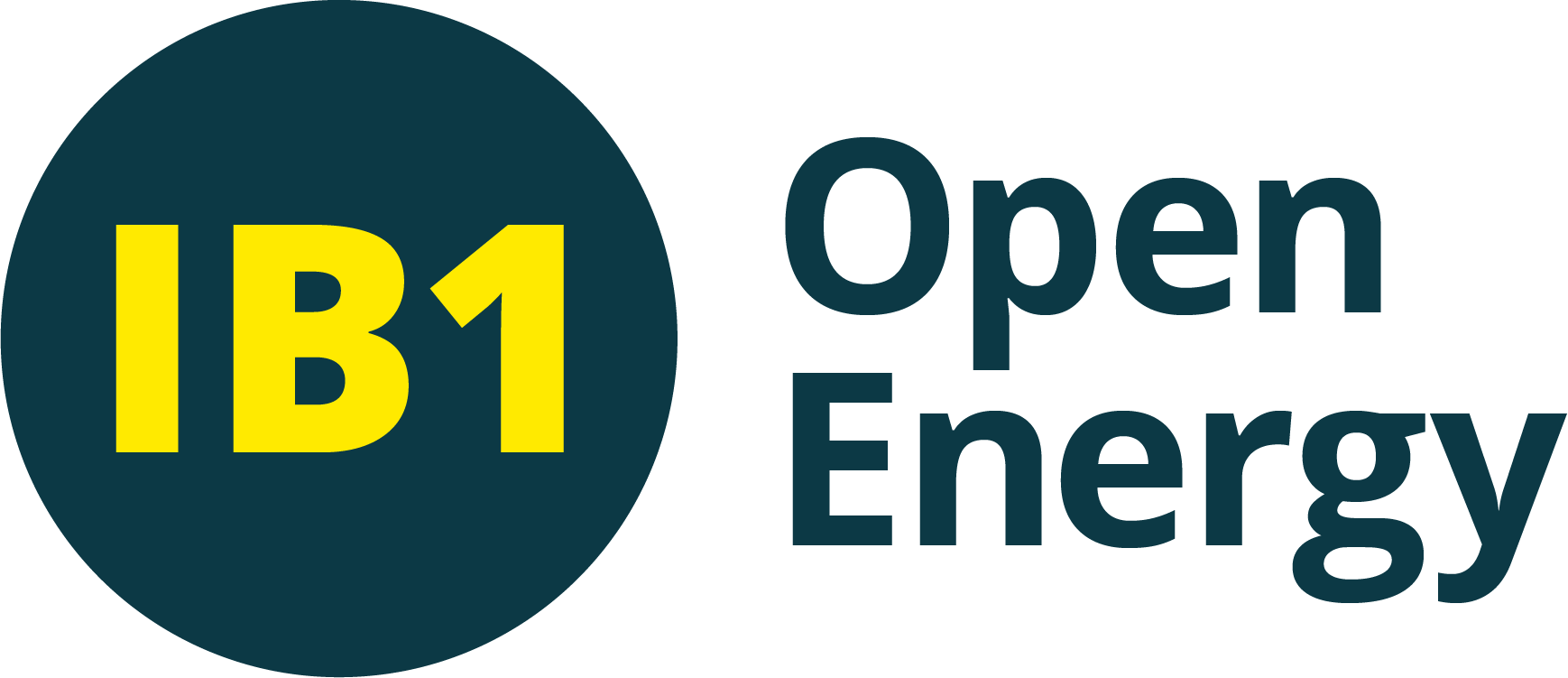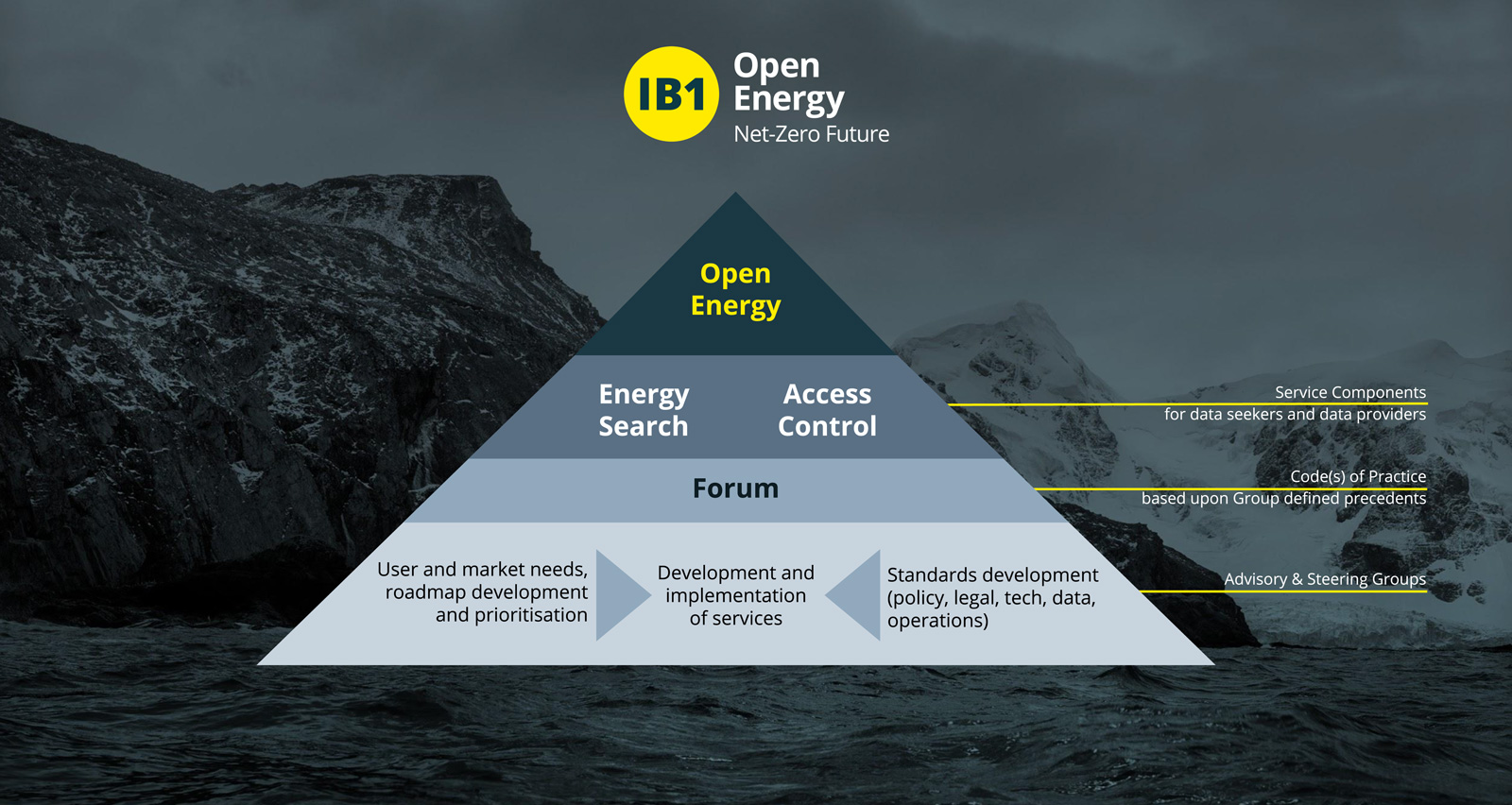WHAT?
At a glance:
- Open Energy in 5 minutes
- Mapping the landscape
- The UK energy data ecosystem
- Data Spectrum: Energy
- Open Energy gets UK Government backing
In more detail:
WHY?
Our Net-Zero Future:
- Using data to drive to Net Zero
- How can the structure of our energy markets support the transition to net zero?
- How can data sharing help deliver net zero? – Finextra TV
- Get smart: data in local net zero
Future of energy data sharing:
HOW?
Services in beta:
- How to prepare your organisation for Open Energy
- Energy data-sharing beta test aims to help the UK move to net zero – Smart Cities World
- Hear from our beta users – First reviews of the Open Energy service
- Launch of the Open Energy beta programme
- Unlocking energy data – an early look at the Open Energy product
Join us:
- Getting on board with Open Energy
- Open Energy for DNOs

Open Energy makes it easy to search,
control access and securely share energy data
Backed by Ofgem and the UK Government (UKRI and BEIS), it indexes data across
organisations and institutions to unlock an open marketplace for energy data
“This one stop shop for cross sectoral data is helpful and will save so much time…This is world leading, there’s nothing like it.”
Dr Grant Wilson, Energy Informatics Group, University of Birmingham



FAQ
In this phase, which runs until July 31st 2021, we’re taking the prototype
Energy Data Search and Open Energy Governance Platform (OEGP) we built in Phase 2, and making them part of a live service, with real users. This is supported by the development of a sustainable Membership model. Members will join Open Energy, which is a not-for-profit organisation. They will be charged a fee that is transparent, proportionate, and represents fair value. Fees will not present an obstacle to joining, so even the smallest start-up, not-for-profit or academic institution can participate. Membership requires accreditation of each organisation that joins, and agreement to adhere to the policies/rules of Open Energy. This then allows use of the Governance Platform. Importantly, we are ensuring that Membership will be shaped by the sector, to meet sector needs. At present (April 2021) we are currently beginning user testing around the core use case (a Local Authority Community Retrofit). The next key milestones for MEDA Phase 3 are:- May: Private Beta with curated industry users;
- June: Public Beta and wider engagement
- July: Plan for live service launch delivered
Beyond this we will launch an operational service, with market-ready scaleable
Yes. Open Energy is currently governed by two Advisory Groups and a Steering Group. The membership of these groups is designed to represent a range of different types of organisations in the energy sector, and broader digital sector where relevant. Open Energy is guided by our principle of ‘by the sector, for the sector’ and we will review our governance beyond Phase 3 to ensure we continue to align with this principle. Open Energy members can apply to join the Advisory and Steering Groups. However, membership of these groups will not be restricted to members only and non-members may be invited to join in order to balance representation.
If you are interested in participating in future Open Energy governance mechanisms please contact
openenergy@icebreakerone.org.
We envisage that the LA would be able to undertake scenario planning to understand the impact of low carbon technology deployments and discuss this with the DNO. So, the installation of EV charge points, heat pumps etc. will increase the import power requirements which will need to be validated against the available headroom capacity. The DNO would need to understand these and work with the LA to make sure LCT installations are aligned to the DNO's ability to support these. Hence, the DNO would need to understand the plans and may make recommendations relating to the optimum locations on the network for LCT deployments.
DNOs are launching new digital tools to support proactive planning activities, for example, substation capacity maps to facilitate the installation of Electric Vehicle charging points. These tools can be used by LAs in advance of engaging formally with the DNO to discuss major developments.
Open Energy provides two new capabilities.
Energy Data Search. Users can search for published energy data that meets their specific requirements. Searches can be filtered so that specific data types and locations can be discovered. The data is signposted and the user can see if the data is “open” or “shared”. If the data is open, then it can be accessed directly. If it is shared then it can only be accessed if the user is an approved Member of Open Energy.
Governance Platform. This will enable Members to publish and access energy data easily without requiring a bilateral contract or having to agree to a unique set of terms and conditions every time a new data sharing arrangement is set up. Members must be accredited to join Open Energy, which is a trust framework enabling secure access to energy data. This requires agreeing to Open Energy rules and common data sharing licences, removing the need for bilateral contracts to share data between parties. These rules are applied automatically by the Governance Platform to allow participant access to data.
Personal data is
defined under GDPR as: ‘any information relating to an identified or identifiable natural person (data subject).’ This is either directly or indirectly - where data or information is combined. Data ceases to be personal when it is made anonymous, and an individual is no longer identifiable. But for data to be truly anonymised, the anonymisation must be irreversible. Data that has been encrypted, de-identified or pseudonymised but can be used to re-identify a person is still personal data.
Open Energy will not enable the sharing of personal data, as defined under UK and EU law, in Phase 3. At present, we are prioritising development of non-personal data sharing in order to satisfy the data requirements of our
We delivered a three-month programme of deep engagement
with stakeholders across the energy sector, which was completed in November 2020. Since then, we have been working in close consultation with two Advisory Groups and a Steering Group made up of a diverse group of sector representatives, as we build and shape the Open Energy service and membership model. We also have a Review Track group, again drawn from the energy sector, with whom we consult on an ongoing basis. We publish our work regularly and invite comment from all interested parties. We believe that industry engagement is critical to success, which is why we have taken this collaborative approach. Understanding and answering the user's needs is what makes our approach different.
If you are interested in being involved in our future work, please email us on
openenergy@icebreakerone.org.
Because this is what we have heard from the energy sector. In
Phase 1, we engaged 200+ stakeholders from across the energy sector who all articulated a need for an open standards-based approach to facilitate the sharing of data within the industry. We recognise that the users' needs are diverse and encompass millions of datasets from consumers, providers and regulators. Our research in Phase 1 highlighted the risks to implementation unless governance is addressed as well as an overwhelming objection to a ‘single data platform’.
Our recommendation is to create a critical piece of innovation (the


